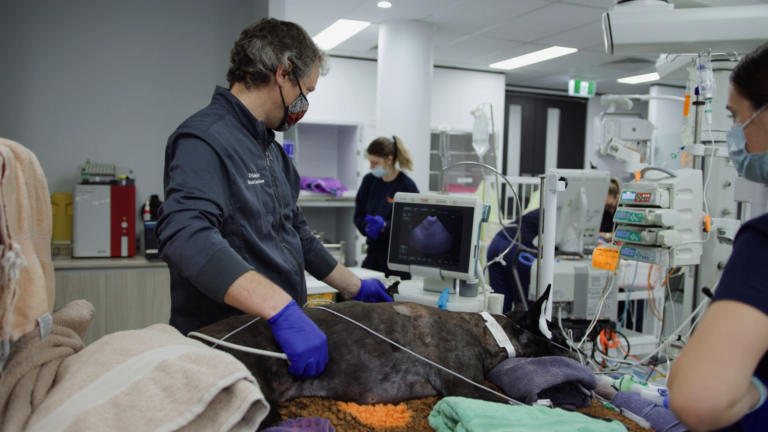Tick season is now well and truly upon us. While ticks are present all year round, recent warmer weather and rain has brought more cases of tick paralysis, with some very serious cases needing a ventilator. A ventilator is a life support machine that “breathes” for patients that are unable to do so themselves. Patients are kept on ventilators until their breathing muscles recover from being paralysed. Only recently, SASH saw our first tick paralysis case that required ventilation.
Charlie’s family first noticed that something wasn’t quite right with the 8 year old Maltese Cross when he suddenly became a little wobbly while walking, and wasn’t able to jump onto the couch. It was then that they found a tick by his ear. Although the tick was removed immediately, Charlie’s family knew that they needed urgently veterinary care.
Soon after arriving at SASH, and despite being treated with anti-toxin, Charlie’s condition deteriorated quickly. In a matter of hours, he struggled to breathe, which meant that a ventilator was needed. He spent a total of three days on the ventilator, under 24 hour care, in the SASH Critical Care unit, which is a department reserved for patients requiring the most medical attention.
Thankfully, after a total of five days, Charlie recovered and has since returned home to his family, with a clean bill of health. He’s back to his normal cheerful self, jumping on furniture and enjoying the sunny spring weather.
While Charlie was our first case of tick paralysis to require the ventilator this year, he unfortunately will not be the last. Paralysis ticks are exceedingly common in and around the city, even in urban areas without bushland. It is vitally important that ALL dogs and cats are up to date with tick prevention medications, and monitored very closely for any signs of tick paralysis. Like Charlie’s family, seek urgent care if symptoms develop. For more information on what you can do to prevent tick paralysis, consult your local veterinarian, and read our tick paralysis article:





